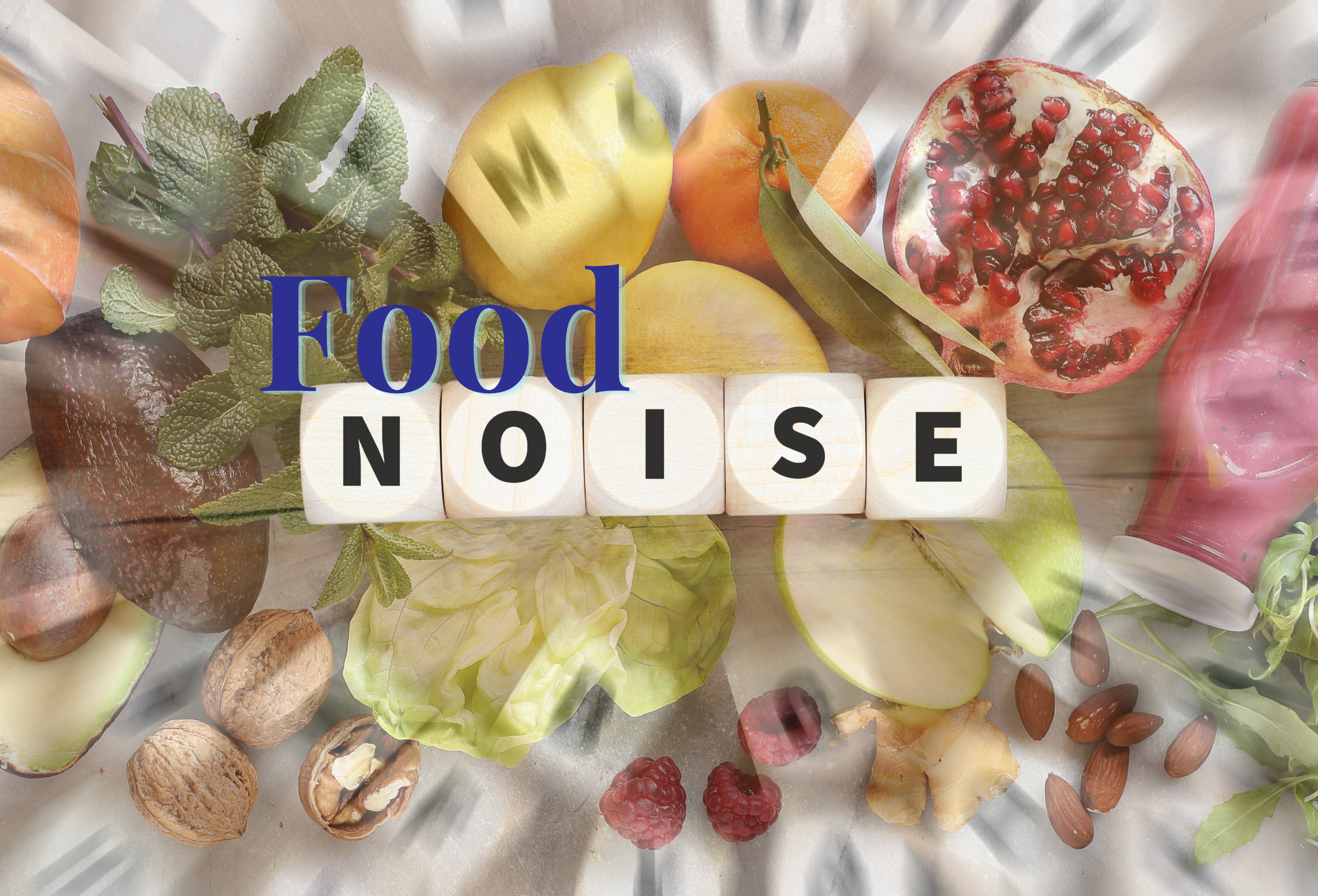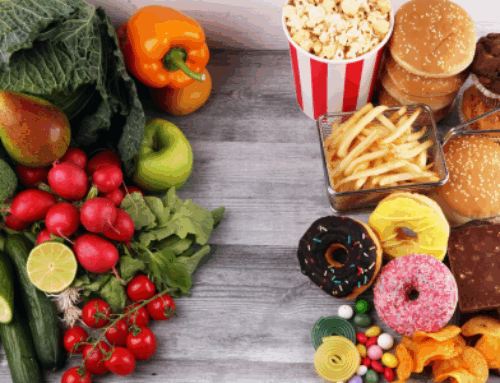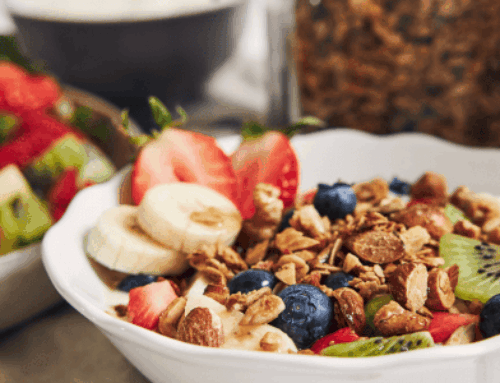Have a think about your answers to these questions:
Do you find yourself thinking about food all the time?
- What you’re going to eat.
- How much you should eat.
- When you get to eat again.
Would you describe this as feeling like you’re preoccupied with food?
Do your thoughts about food feel uncontrollable?
Do you think about food, even when you’re not hungry?
And finally, do these thoughts about food negatively affect your life or distract you from what you need to do?
If you’re nodding yes to these questions, you might be experiencing food noise.
What is food noise?
The concept of food noise has received considerable attention recently, especially since the early 2020s, when glucagon-like peptide-1 receptor agonists (GLP-1) became available to treat obesity. Aka ozempic (and others)!
There is little research on “food noise” as a construct and no psychometrically valid measures of it. Most of the talk is anecdotal – the reports from clinical settings are that patients describe food noise as the experience of having a constant inner dialogue about food and a continuous flux of food-related thoughts that include thinking about what to eat, how much to eat and when to eat again. Patients treated with GLP-1 receptor agonists and similar compounds often report a noticeable reduction in food-related thoughts.
Such patients report previously experiencing constant and persistent thoughts about foods and eating that were difficult to suppress, to the point of feeling as if their lives revolved around food.
A few examples of anecdotal accounts of what patients call “food noise” are as follows:
- thinking about food all the time (particularly highly palatable and energy-dense foods),
- feeling tempted to check food delivery applications multiple times a day, and
- thinking about the next meal they will consume while eating the current meal.
Other concepts related to food noise
Other terms used in the science related to food noise are Food Related Intrusive Thoughts and Food Cue Reactivity.
Food-related intrusive thoughts are a constant rumination and obsessive preoccupation about food, and are believed to be experienced by people with and without clinically diagnosed eating disorders, particularly when struggling with their body weight or body image.
Food cue reactivity is a conditioned response to food cues, including physiological and psychological manifestations that favour food-seeking behaviours. In plain language, our brains are experts at making us desire the foods and beverages we see, smell, and hear (e.g., the sound of bacon sizzling in a skillet).
These motivational responses that arise from reactivity to food cues are consciously experienced as food-related cognitions and food cravings, defined as intense desires or urges to consume food. These responses can happen regardless of physiological hunger levels and ultimately lead to increased food-seeking and consumption behaviours.
And so, it could be that food noise is the heightened and/or persistent manifestations of food cue reactivity, often leading to food-related intrusive thoughts and disordered eating behaviours. It’s possible that these are barriers to positive lifestyle changes for long-term health, which contribute to overeating and maladaptive eating behaviours like emotional eating. Phew!
What you can do about food noise
So what should we do?
Firstly, given that this is a fairly new construct, there is no evidence-base for us to start to make claims that you should do X,Y & Z to reduce food noise.
However, awareness is the first step to change, and we’d encourage our clients and members to take the time to get awareness of their thoughts, whether “food noise” is something they experience, and whether or not this impacts their wellbeing and how.
Journal it. Document your thoughts. Don’t try to change anything, just observe your thoughts as kindly as possible, without judgement.
Once you get this awareness, you can start to unpack and address the various thoughts and then explore ways to mange them. This is best done with a qualified health professional with experience in this area like a psychologist or a dietitian. A dietitian can also help you to understand your nutritional needs and wether they are being met, as eating less than we need can also be a precursor to food noise.
It’s also important to understand that like many aspects of our health and nutrition, there is rarely a simple solution to a complex situation. However, this understanding shouldn’t deter us from change; in fact, it can help us give grace and kindness to ourselves as we create time and space to discover the underlying cause/causes of our own experience of food noise and ultimately eat without stress, guilt and shame.
One-on-one nutrition coaching is a great way to get individualised, non-diet nutrition advice and Ayla Health specialises in helping you eat well and improve your diet quality without stress, so this can be a positive step in the right direction.
We offer a free 30 minute strategy session to get started. No obligation, just a chat so that we can get to know each other and you can decide if we’re the right fit for you.
Also, it might be worth checking in with a psychologist and getting some support there.
In the meantime, we look forward to this research space evolving further.






